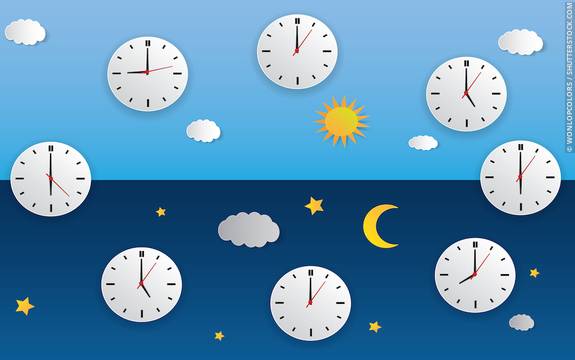Sleep is the process in which humans and other animals periodically rest, with greater or lesser degrees of unconsciousness and decreased responsiveness to the surrounding world. Sleep occurs cyclically, roughly every 24 hours even though the average human inner body clock usually runs a 24.5-25.5 hour cycle. This cycle gets reset daily (to match 24 hours) with various stimuli such as sunlight. One of the correlates of this cycle is the level of melatonin, which is high at times when we tend to sleep. Some people sleep twice every 24 hours (afternoon nap, siesta).
Stages of sleep
Human sleep are usually divided into 5 stages according to electroencephalographic (EEG) recordings:
- REM sleep with rapid eye movements - this includes dreaming,
- Stage 1 with 50% reduction in alpha waves compared to awake resting with eyes closed. The stage is sometimes referred to as somnolence or "drowsy sleep". It appears at sleep onset and can be associated with so-called hypnagogic hallucinations
- Stage 2 with "splindles" (12-16Hz) and "K-complexes"
- Stage 3 with delta waves (1-2Hz) 20%-50% of the time.
- Stage 4 with delta waves over 50% of the time



























